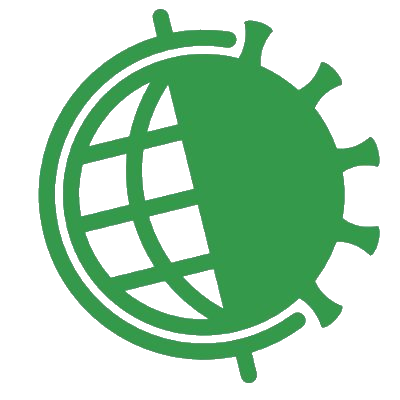By Joelle Grogan (external contributor)
The Covid-19 pandemic caused a severe strain on health systems globally, while simultaneously presenting a social, economic, legal, political, and regulatory challenge. Decisions about how to respond to the pandemic, and the laws and measures most appropriate to limit risk and infection were mainly, if not exclusively, decided by national executive authorities, often to the detriment and exclusion of the legislature. Central to this complex, polycentric, and multifaceted emergency were two key questions: 1) who should be the dominant decision-maker; and 2) how should decisions be made. In this blog, some initial observations on the decision-makers, and processes of decision-making, are outlined.
In a democracy, it could be stated that the allocation of scarce state resources – particularly health services and fiscal support – ought to be decided by the elected whose ultimate accountability for those decisions is to the electorate. However, where an emergency creates an unexpected situation demanding complex calculations, paired with the need for urgent decision-making, those elected prior to the advent of the Covid-19 pandemic were not elected with governance of such an emergency in mind. Just as existing legal frameworks may not have accounted for the unexpected exigencies of a global pandemic, governments and legislatures were largely unprepared.
While globally, states have diverged in their responses to the pandemic, both in levels and forms of restriction imposed on populations, and in abstract ideological terms on the level of threat that the virus posed (as for example in Bolsonaro’s Brazil and the US under the Trump administration), it is nonetheless possible to observe common and distinct trends of influence over decision-making practices worldwide.
The Technocrats
In the absence of a clear understanding of the most effective course of action, many governments sought to rely on health expertise in decision-making and design of pandemic measures. Succinctly: ‘[t]echnocratic governments are crisis governments.’ The creation of expert advisory groups, with different degrees of influence over the creation of pandemic measures, was a common feature, for example in Taiwan and Germany, as well as in South Africa, with the formation of Ministerial Advisory Committees (MACs) on Covid-19, social and behavioural change, and vaccines. While there was no obligation to follow the MACs opinion, the Government indicated that it followed the advice 95% of the time, and – in response to criticism – made the advice public to facilitate transparency. However, further criticism was levelled where the Government restricted disapproval of its pandemic management, even from within the MACs.
Reliance on expertise does not immunise decision-making from democratic concerns, particularly where meetings between experts and decision-makers are held on camera behind closed doors, the rationale for measures is opaque, unpublished, or produced by only a limited number of expert opinions.
Technocratic governance can also raise democratic concerns, where decisions impact not only the allocation of state resources, but also fundamental rights and freedoms - for example, when decisions appear to be made not by elected officials, but by unelected experts, on when to restrict movement, close borders, or place the state under national or localised lockdowns. In the Netherlands, the Government response was primarily led by the advice of epidemiological experts, who directed the introduction of measures restricting constitutional freedoms, including the restriction of gatherings for protest or religious practice.
Such experts can appear democratically unaccountable, yet are significantly influencing, if not ultimately determining, decisions which ought to be. This becomes all the more concerning where the rationale for measures is unpublished or otherwise unavailable for scrutiny. While the accountability of governments is ultimately to the electorate, the responsibility (and accountability) of experts is to their field and their profession: the reasoning of both should be open to informed scrutiny.
A further criticism of ‘technocratic’ pandemic governance was the relative poverty of influence of expertise beyond virologists and epidemiologists. The pandemic and measures adopted in response to it negatively impacted more than public health. Scientific analysis and a focus on outcomes solely related to the virus, can view populations as ‘monolithic’ and may not give account of the impact of decisions on other human rights including, for example, liberty, access to justice, education, and livelihood. As widely identified, the initial advice of ‘stay home and wash your hands’ was impracticable among populations without ready access to water, and who relied on daily work outside the home for access to food. In these situations, gauging the individual threat of Covid-19, the choice to between staying home must instead be weighed against losing access to the most basic needs of food, housing, and sanitation.. Tackling not only the disease, but the ‘shadow pandemics’ of, eg, domestic violence and rising poverty which spread as a consequence of measures taken in response to it, demands more than health expertise.
A lesson for future pandemic emergency response is that diverse types of expertise should be harnessed to advise political decision-makers, though it must be acknowledged that such consultation may more likely be able to inform medium- to longer-term response and recovery, rather than the immediate response to an emerging crisis.
Militarised Mentality and the trend toward autocracy
By contrast to decisions driven primarily by public health interests, in a number of states globally, the pandemic crisis was treated as a security crisis. This securitisation of the health crisis has often correlated with the militarisation of pandemic response, for example, where military personnel have replaced medical professionals in decision-making processes. In Hungary, instead of relying primarily on democratic institutions, the military became the source of both authority when placed in senior positions in hospitals as well as telecommunications, transport, and healthcare companies, but also enforcement where charged with implementing pandemic measures - including curfew.
The justification often offered for the militarisation of pandemic response was increased efficiency and capacity: they can become a preferred response unit in emergencies and crises. In many states during the pandemic, military structures have supported civilian-led responses (eg in Taiwan, Japan, France, and Singapore). However, in some states (eg Indonesia, the Philippines, and Iran) it has primarily led it. A consequent ‘militarised mentality’ can push executive choice towards 'expansive, unaccountable emergency law' reminiscent of dictatorship. Under such a regime, ordinary civilian administration can become marginalised, underfunded, and dysfunctional. It also severely risks undermining or otherwise delegitimising a democratic response, and can serve as a weight against democratisation processes already weakened by a heavy-handed pandemic response.
Under a militarised leadership, mere obedience, rather than offering justified reasoning and clear guidelines, is the strategy for public compliance as seen, for example, in Egypt. Such militarised response also often goes hand-in-hand with autocratic or autocratising governance.
An assumption widely circulated through the early response to the pandemic was that autocratic states are able to respond to an emergency situation more effectively than democracies that respect constitutional restraints on executive power. Some states too have propagated politicised dichotomies of effective pandemic management being a choice between protecting public health or human rights – often favouring the former to the detriment of the latter. However, overconfidence in autocratic control of a situation – especially to the exclusion of expert advice – can easily produce drift and complacency, as evidenced to devastating and tragic effect in India and Malaysia.
Chaotic Governance
A further concerning trend is weak or no pandemic governance altogether: for example, chaotic decision-making indicating that executives are uncertain about policy choices or the objectives to be pursued bolsters the perception that executive reasoning was not based on any sound scientific, economic, or political rationale. Reliance on pseudo-scientific claims, or those with no scientific basis as in Brazil and Pakistan and more recently the UK was correlated with the absence of central policy control, if not outright refusal to acknowledge the threat, and is connected with 'policy inertia, poor messaging, and inconsistent enforcement.' Where the governance is 'chaotic, uncoordinated, inconsistent, and unpredictable', or where officials fail to follow the rules they themselves imposed, public compliance is abandoned, and public trust is demolished and the capacity of states to effectively respond to pandemic is diminished.
A Question of Trust
Public trust, while not easily quantifiable, is arguably central to the most stable and effective governance and institutions. Poor response can result in poor evaluation by the public, whereas successful management can strengthen a regime of any type. The perception of control, arguably successfully managed by the entirely contrasting regimes of China and New Zealand, has correlated with a more favourable view of the system in which those decisions are operating. For democracies, a lesson of the pandemic may be to ensure active engagement, and wide participation beyond the technocrats. As evidenced by Taiwan, 'the key to prevent tyranny in pandemic control is a transparent and responsive political process in which citizen activism is a crucial part.'
Even where the protection of public health may justify short-term limitation of political accountability through the legislature, there must be a robust commitment to public rationality through transparent decision-making processes, as this is essential to democratic discourse and, ultimately, a healthy democratic system.
TWEET
